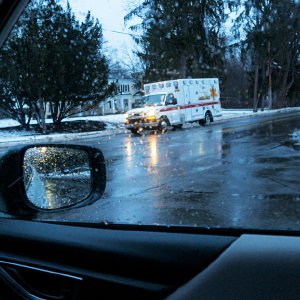Drug Rehabs Should Do More Than Save Lives

Premature death is a real threat for any drug abuser and a constant source of worry for the abuser’s family and friends. The worry makes for sleepless nights, prompts begging and pleading with the addict, and takes up endless hours on the internet, searching for answers. This all goes away when the doors of rehab close behind the addict. Ask anyone who has gotten a family member into rehab. The relief is palpable. Boom—worry over. This scenario plays out day after day for thousands of people.
Rehab performs the heroic task of saving lives on an immediate basis. But should it do more? If it is to be an effective part of solving a problem as deep and as wide as addiction it should; by reducing future risk of death.
The Numbers
Let’s examine the big picture of addiction. (And it is big). Here are some hard-core statistics:
- In 2019, 71000 people died from drug overdose.
- Drug overdose deaths involving synthetic opioids (like fentanyl, fentanyl analogs, and tramadol, to name a few) went up by ten percent in 2018 and again increased in 2019.
- Furthermore, the rate of fatal cocaine overdoses and methamphetamine deaths are also on rise, indicating a broad surge in overdose deaths among several different types of drugs.
In 2018 the drug overdoses declined by 4%. This decrease was the result of the utilization of many resources, including policy, prevention, criminal justice reform and medical services. The stat rose again by 4% in 2019, despite the continuing aggregate of effort. This indicates the sheer size of substance abuse in our country and the inadequacy of solutions despite our best efforts.
Unfortunately, when drug addicts do not get help at rehab centers, their prospects for a long and happy life are not great. In fact, the longer they use drugs, the more likely they are to die from an overdose. We see this truth played out time and time again as reflected by the sheer death toll numbers caused by drug and alcohol addiction in America.

The Treatment Gap
There is a huge treatment gap in the United States. According to the Surgeon General, only about one in ten people who struggle with addiction ever receive treatment. Indeed, it is difficult to confront the reality of what these stats mean:
There are tens of millions of Americans struggling with addiction today and very few will ever receive the help they need to overcome it. They and their families are left to fend for themselves and cope with their crisis on their own. Though we can measure the stats, the suffering is immeasurable. This situation is wrong and requires more than a wake-up call. We have been ringing one alarm for a 12-alarm fire.
The reality is that the current situation portends for worse stats with more lives lost unless there is a massive and consolidated effort, large enough to combat what could easily be called, one of this country’s worst public health crises.
What Will it Take?
The reason we have not been able to curb America’s addiction problem is not because we are not trying—we are. This is evidenced by all the diligent efforts we are making against the crisis. We are just not making all the right efforts at levels of sufficient magnitude needed to profoundly change the picture.
So, what will it really take? As a nation, on an immediate basis, we need to move in the direction of ensuring that every drug addict and alcohol abuser has access to effective and quality treatment. Effective means that treatment benefits extend beyond the immediate relief of saving a life. That life must remain safe after treatment. Such programs exist and they perform this function in more ways than one—but we need more of them. The truth about addiction and the need for more resources should be communicated on a broad scale to anyone who cares and can do something about it. There are many ways to do this. For example, National Recovery Month and Red Ribbon Week are opportune times to get the message out to the public.
What Can Drug Treatment Do?
A comprehensive drug rehab treatment program saves and improves the life of the individual. Treatment restores the addict’s ability to be a functioning member of society. This is achieved in part through addressing and overcoming the reasons why an individual is abusing drugs. It is vital to address the underlying reasons to make real and lasting progress towards a drug-free life. Take away the drug use impetus and you eliminate the drug use. In addition to getting the addict free from substance abuse, an essential purpose of a drug rehab center is to help an individual return to a happy, healthy life. In other words: Daily drug use is eliminated through examination and comprehension of underlying reasons for drug abuse. Those gains are reinforced, and a better and safer life is created by mastering life skills. The individual is no longer putting life in harm’s way.
When a person leaves rehab ideally, they will remain safe and their family can remain relieved. Society can turn its attention to the millions of addicts who still need help. There is so much work to do!
So yes, rehabs should do more than “save” lives and many do.
Addiction Treatment Now
While we work towards a better future for those afflicted with addiction, we must utilize the resources we have and help everyone we possibly can right now.
Though addiction is a horrible affliction and a potentially life-ending crisis, an addict’s life can be saved and preserved with the help of a residential drug rehab center.
When an addict seeks treatment at a qualified drug and alcohol rehab center, it is akin to a lifeline being thrown to rescue him from the seemingly endless downward spiral of addiction.
If you or someone you care about is struggling with an addiction to drugs or alcohol, please seek help as soon as possible.
If you are looking for help you do not need to be reminded that an addiction to drugs and alcohol is a life-or-death matter, and time is of the essence. We are here to help.
Sources:
- https://www.cdc.gov/nchs/products/databriefs/db356.htm
- https://www.aha.org/news/headline/2020-07-16-cdc-drug-overdose-deaths-46-2019
- https://addiction.surgeongeneral.gov/executive-summary
Reviewed and Edited by Claire Pinelli, ICAADC, CCS, LADC, RAS, MCAP


 ®
®